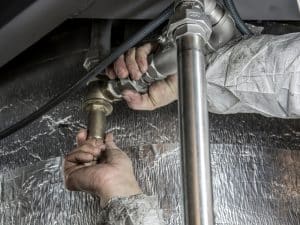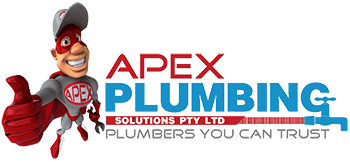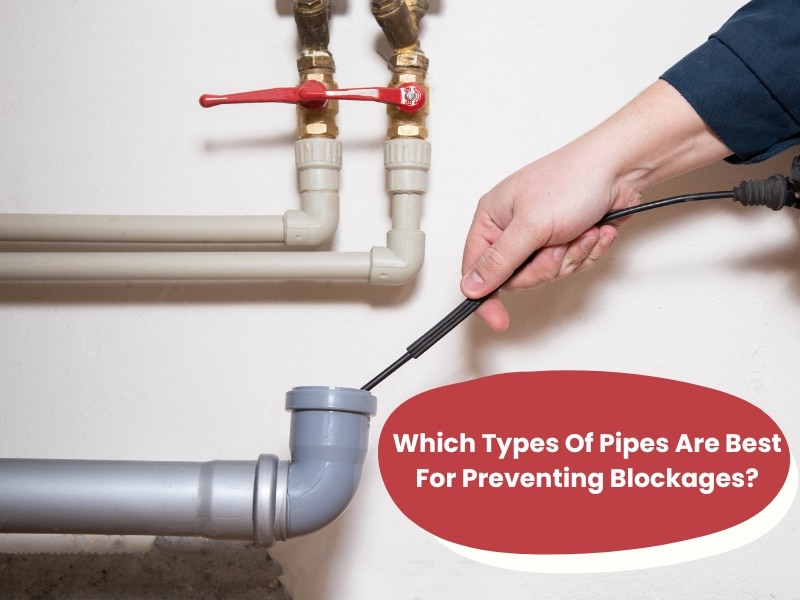Blocked drains and clogged pipes can be a constant hassle in many homes. Choosing the correct type of pipe is crucial for avoiding frequent blockages and keeping plumbing in top shape. In this article, we’ll dive into the best types of pipes to prevent blockages, offering insights on how materials impact longevity, ease of maintenance, and their ability to keep drains clear.
What are the most common causes of pipe blockages in homes?
Blockages happen for several reasons. In kitchens, grease and food particles stick to pipes, gradually forming clogs. Hair wraps around debris in shower and bathroom sink drains, leading to stubborn blockages. In Sydney’s suburban areas, tree roots often invade underground pipes for water, causing significant obstructions. Hard water can also be a problem, as mineral buildup, especially calcium, narrows pipes over time, slowing drainage and increasing the risk of blockages. Additionally, flushing items like “flushable” wipes or paper towels—despite being labelled safe—can cause severe blockages in toilets.
How does pipe material affect blockage prevention?
The material of a pipe plays a significant role in how well it resists blockages. Here’s how different materials stand up:
- PVC: Polyvinyl chloride is known for its smooth interiors resisting build-up, especially in residential settings.
- Cast iron: Long-lasting but prone to rust, which can cause blockages over time.
- Copper: Durable and corrosion-resistant, though costly and sometimes challenging to install.
- ABS plastic: Tough and highly resistant to impact but can degrade with prolonged exposure to sunlight.
- Galvanised steel: Strong but highly susceptible to rust, making it less ideal for long-term use.
Are types of pipes like PVC effective in reducing blockages?
PVC pipes are a popular choice for residential plumbing, especially in areas like Sydney, where durability and affordability matter. Here’s why PVC pipes can help prevent blockages:
- Smooth interior: The smooth surfaces of PVC reduce friction, allowing debris and waste to flow more freely.
- Corrosion resistance: Unlike metal pipes, PVC doesn’t corrode, which reduces the likelihood of clogs from rust buildup.
- Lightweight: PVC is lightweight and easy to install, making it a common choice for new homes and renovations.
- Cost-Effective: More affordable than copper or iron, PVC offers a budget-friendly option without sacrificing quality.

What types of pipes are ideal for residential plumbing?
Choosing the correct type of pipe for your home plumbing needs depends on various factors, including durability and how often the pipes need maintenance. Here are some excellent options:
- PVC (Polyvinyl Chloride): Low-maintenance, affordable, and highly resistant to chemical buildup.
- PEX (Cross-Linked Polyethylene): Flexible and durable, ideal for water supply lines.
- Copper: Copper is best for hot water pipes as it withstands heat without degrading.
- ABS Plastic (Acrylonitrile Butadiene Styrene): A solid choice for residential drains, benefiting from the ABS polymer properties and uses such as impact resistance.
How do cast iron pipes perform against blockages?
Cast iron pipes are known for longevity, making them a traditional favourite. Here’s how they hold up:
- Durability: Cast iron lasts for decades, perfect for long-lasting use.
- Noise reduction: Its thickness reduces water flow noise.
- Blockage susceptibility: Rusting over time may lead to clogs.
- Heavyweight: Installation can be complicated due to weight, making it better for specific plumbing areas.
Which types of pipes are best for toilets to prevent clogs?
Toilets are especially prone to blockages, so selecting a pipe type that minimises clogs is essential. Understanding effective ways to unclog a toilet can be a lifesaver. Here are the ideal options:
- PVC: Resistant to many chemicals and substances commonly flushed, with smooth walls that discourage buildup.
- ABS plastic: Sturdy and suitable for waste lines, helping prevent blockages in toilet pipes.
- Copper (for water supply): Ideal for hot water systems but less commonly used for drains due to its high cost.
Are there any types of pipes that require less maintenance?
Minimising maintenance can be a significant advantage in plumbing. Some pipe materials require less upkeep, reducing the chance of clogs.
- PEX: Highly flexible, resistant to freezing and bursting, making it relatively maintenance-free.
- PVC: Low-cost and corrosion-free, making it easy to maintain in the long run.
- Copper: Requires minimal maintenance and has a long life span. However, it may need occasional inspections for leaks or joint issues.

What are the pros and cons of using plastic pipes in residential plumbing?
Plastic and recycled plastic pipes are increasingly common in residential plumbing. Here’s a breakdown of the recycled plastic pipe pros and cons:
- Pros:
- Lightweight and easy to install.
- Corrosion-resistant, especially in humid climates.
- Affordable and widely available.
- Cons:
- Susceptible to UV damage if exposed to sunlight.
- It may not withstand high temperatures, and neither may metal pipes.
How often should pipes be replaced to prevent blockages?
The longevity of pipes varies, but replacing old pipes can help prevent unexpected blockages. Here’s a rough guide:
- PVC and ABS: Typically last 50–75 years, depending on the water quality and pipe usage.
- Cast Iron: Known to last up to 100 years but should be inspected regularly after 50 years.
- PEX and copper: Can last several decades but may need replacement sooner if subjected to extreme conditions.
Are modern types of pipe materials more effective at preventing blockages than traditional ones?
Technological advances have made modern pipe materials more efficient at preventing blockages.
- Improved resistance: Materials like PVC and PEX resist corrosion better than older pipes.
- Better flow efficiency: Smoother interiors reduce buildup and clogs.
- Enhanced durability: Modern materials are ideal for residential use and withstand extreme temperatures and heavy usage.
Maintaining clear pipes
In conclusion, preventing blocked drains and clogged pipes starts with understanding their common causes and choosing suitable materials for your plumbing system. Modern pipes like PVC and PEX offer excellent resistance to blockages thanks to their durability, smooth surfaces, and corrosion resistance. Regular maintenance and proactive measures, such as addressing tree root intrusion or mineral buildup, can also help keep your plumbing running smoothly. By combining these efforts with professional drain blockage services, you can ensure a more efficient, hassle-free plumbing system in your home.
Are plumbing issues disrupting your home or business? Apex Plumbing Services offers honest and affordable solutions tailored to your needs. Our experienced team is equipped to handle everything from minor repairs to central installations for residential and commercial properties. We prioritise customer satisfaction with personalised services and provide 24/7 emergency support when you need us most. Using advanced technology, we ensure efficient and effective plumbing solutions. Reach out to Apex Plumbing Services today – where there’s flowing water, there will always be a need for quality plumbing!


